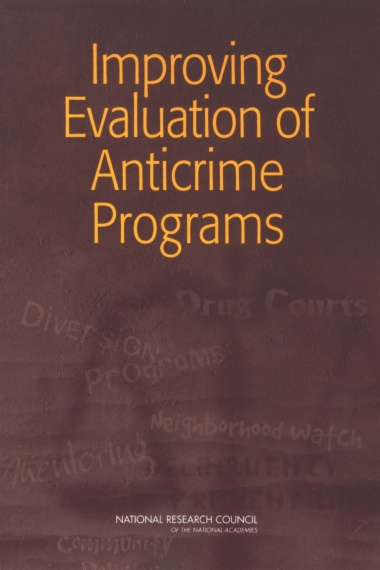Although billions of dollars have been spent on crime prevention and control
programs during the past decade, scientifically strong impact evaluations of these
programs are uncommon in the context of the overall number of programs that
have received funding. Improving Evaluation of Anticrime Programs is designed as a
working guide for agencies and organizations responsible for program evaluation,
for researchers who must design scientifically credible evaluations of government
and privately sponsored programs, and for policy officials who are investing more
and more in the concept of evidence-based policy to guide their decisions in crucial
areas of crime prevention and control.
- Cover
- Front Matter
- Executive Summary
- 1 Introduction
- 2 What Questions Should the Evaluation Address?
- 3 When Is an Impact Evaluation Appropriate?
- 4 How Should an Impact Evaluation Be Designed?
- 5 How Should the Evaluation Be Implemented?
- 6 What Organizational Infrastructure and Procedures Support High-Quality Evaluation?
- 7 Summary, Conclusions, and Recommendations: Priorities and Focus
- References
- Appendix A Biographical Sketches of Committee Members and Staff
- Appendix B Participant List: Workshop on Improving Evaluation of Criminal Justice Programs

